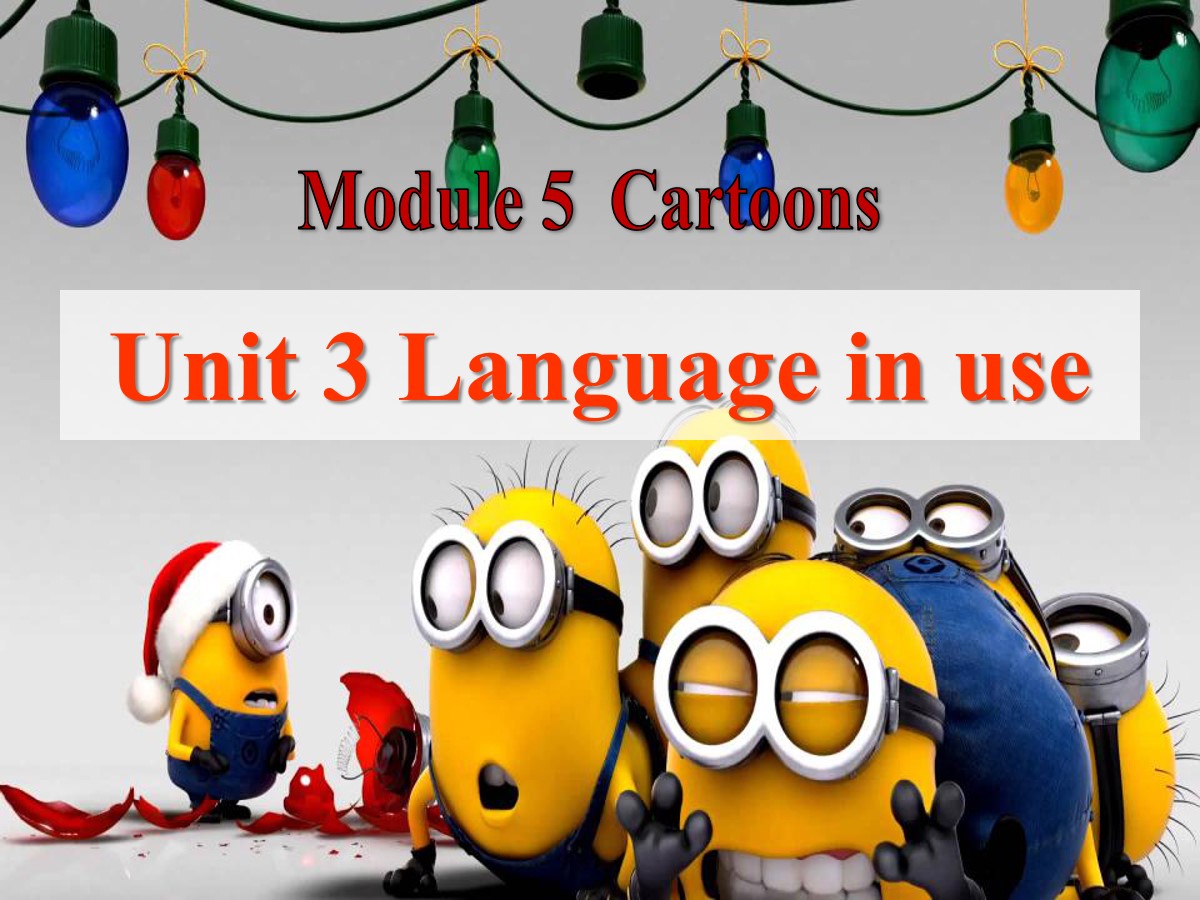《I can hardly believe we're in the city center》Time off PPT课件
![]() 0
0
 《I can hardly believe we're in the city center》Time off PPT课件
《I can hardly believe we're in the city center》Time off PPT课件
Think about it!
Do you like to travel? Where do you want to go?
Do you know some world famous tourist attractions?
Let’s play a game!
Look at each picture (symbol building) and
say out the name of the city in two seconds.
... ... ...
Teaching aims
1. Teaching aims:
To get the main ideas of the listening material and the conversation
To understand the object clause with that in context
To be able to introduce a place of interest in your home town
2. Main contents:
Key vocabulary
hardly, take up; point out; at the top of; waste
Key structures
I can hardly believe we’re in the city centre.
I don’t think they allow people to swim in the lake.
I hope it will be cooler up here.
... ... ...
Words and expressions
/'h:dli/ 几乎不;几乎没 adv. hardly
占去(时间或空间) certain
指出;指明 point out
/saIts/ (用复数)风景;名胜 n. sights
/'θɜ:stI/ 渴的 adj. thirsty
在……的顶端 at the top of
/weIst/ 浪费;滥用 v. waste
浪费;滥用 n.
... ... ...
1. Look at the photo and listen. What is the conversation about?
The conversation is about going to Beihai Park.
2. Listen again and choose the correct answer.
1. Tony has / hasn't heard about Beihai Park.
2. Tony guesses that the park is very popular / not very popular.
3. Lingling suggests that they spend the day there / Darning and Betty come too.
4. Lingling thinks / doesn't think the park will be busy.
Tapescript
Tony: I've heard that Beihai Park is very beautiful.
Lingling: Yes, it is. Shall we go for a walk there?
Tony: That's a great idea. Maybe Daming and Betty will come too.
Lingling: Let's tell them that we're going to spend the day there.
Tony: I guess it's a very popular place.
Will there be lots of people there?
Lingling: Well, lots of people go there, but it's a big park, so I don't think it'll be very busy.
Tony: I hope not.
... ... ...
连读的基本规则
句中两词相邻时,如果前一个词的词尾是辅音音素,而后一个词的词首是元音音素, 则往往需要连读。如:Will it take a lot of time to go to town on foot?
以字母r或re结尾的词,在与元音音素开头的词相邻时,/r/要读出来。如:There is a pair of shoes.
英语语音中/j/和/w/是半元音,如果前一个词以辅音音素结尾,后一个词以半元音,特别是/j/开头,也要连读。如: Did you go to Shanghai last year?
如果短语之间或分句之间有停顿,其相邻的音不连读。如:Can you speak Chinese or... English?
... ... ...
Language points
1. time off
★time off“休假,放假” , 是名词短语。
You work too hard. You should take some time off.
你太辛苦了,应该休息一段时间。
Her boss gave her time off.
她的老板准了她的假。
2. I can hardly believe we’re in the city centre.
我几乎不敢相信我们是在市中心。
hardly adv. 意思是“几乎不,几乎没有”与
seldom等词一样,本身含有 否定的意思。
I hardly know you.
我不太认识你。
He was given hardly 24 hours to pack his bags.
只给了他不到24小时的时间来打点行装。
hard adv. 努力地
You must work hard.
你必须努力工作。
3. It’s so quiet that I can even hear the birds singing!
这里如此安静,以至于我甚至可以听到鸟叫声!
so…that…引导结果状语从句,意思是“如此……以至于……”,如:
I was so tired that I slept in this chair.
我太累了,以至于在椅子上睡着了。
... ... ...
Exercise
一、单项选择题。
1. It was raining very _____. What's worse, my car broke down.
A. heavy B. hardly C. hard D. heavier
2. China is ______for its delicious food.
A. good B. famous C. popular D. like
3. —Excuse me. Can you tell me the way to the bookstore?
—Walk along the road and ____ the bridge, and you will see it in front of you.
A. across B. cross C. through D. over
4. We don't allow people _____in the cinema.
A. smoke B. smoked
C. smoking D. to smoke
... ... ...
二、根据句意和首字母提示写单词。
1. I like the beautiful s_____ of this city.
2. He is very t______ and he needs some water now.
3. I can h_____ understand what he said because he speaks English too quickly.
4. They walked around the lake and c____ the small bridge.
Homework
Learn the new words and expressions in this module.
Describe a park around your home or school .
















 关于我们
关于我们 备案号:冀ICP备18037400号-20
备案号:冀ICP备18037400号-20